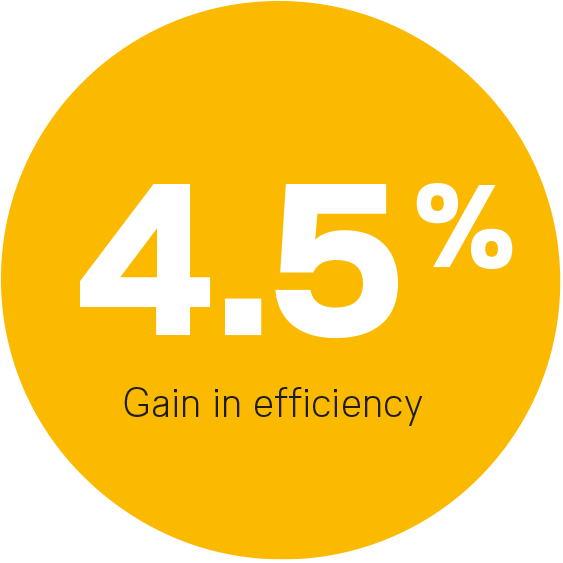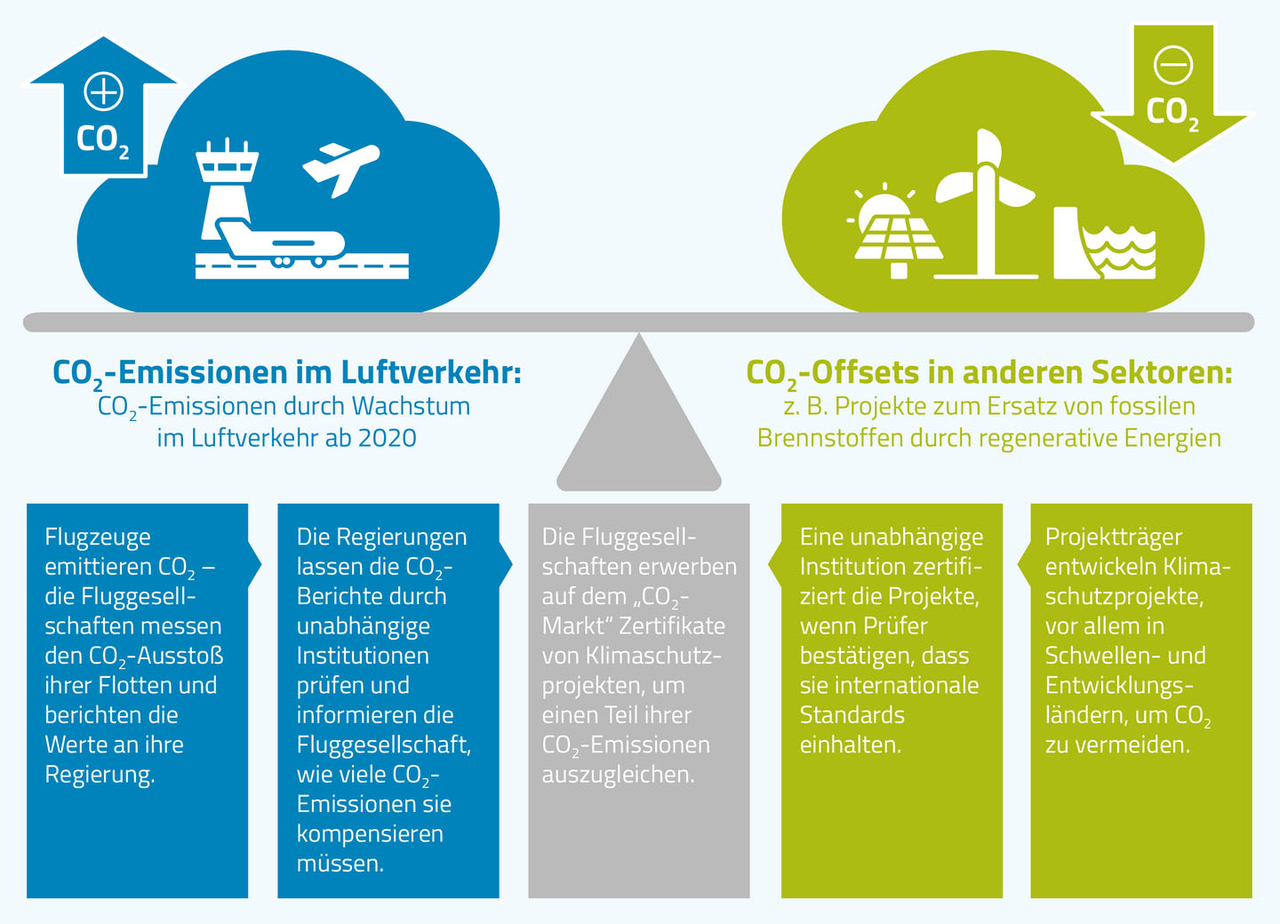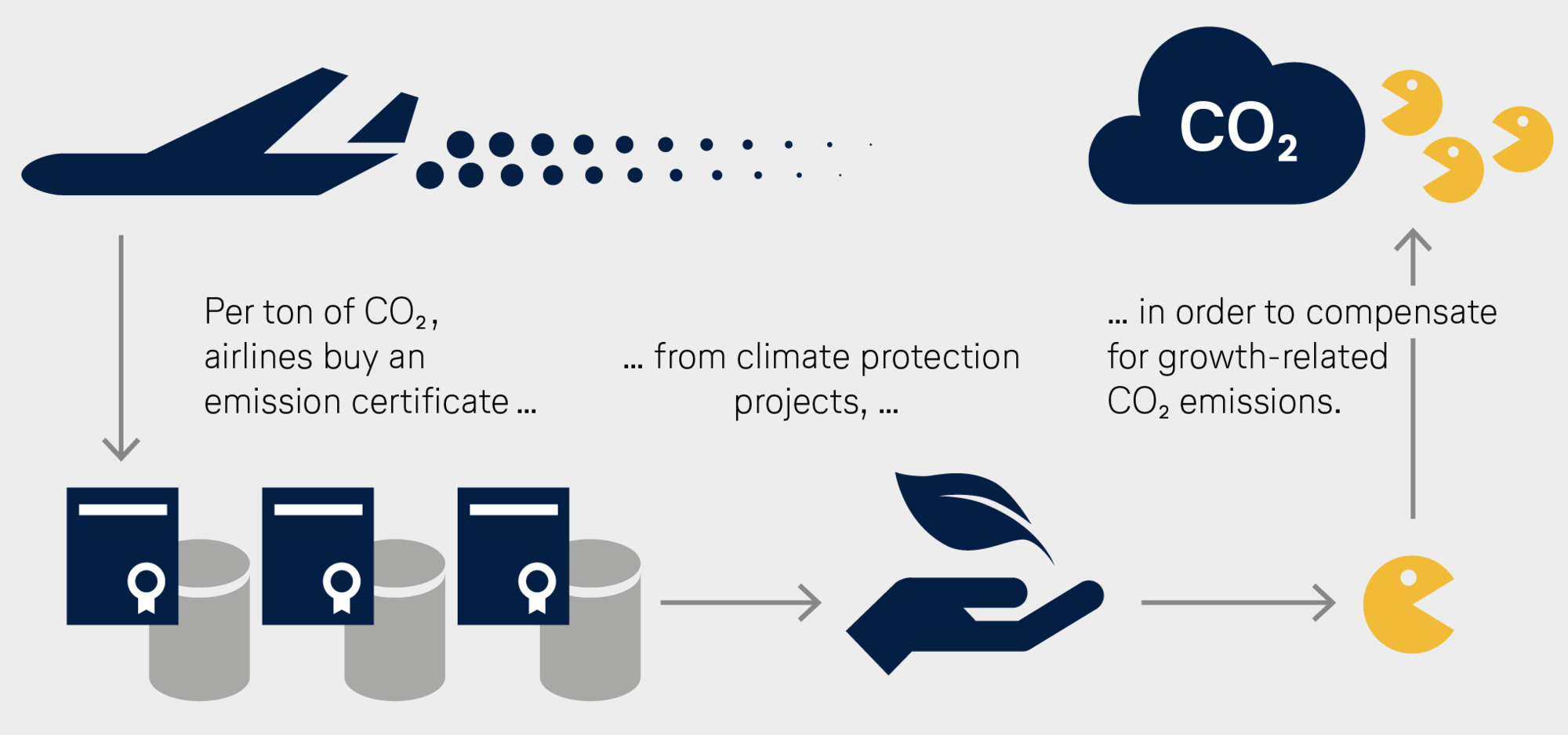CO₂-neutral growth
Aviation plays a pioneering role
Aviation plays a pioneering role when it comes to standard global climate protection. As of 1 January 2019, airlines all around the world will report how much carbon dioxide they emit. This will then form the basis for the climate protection system CORSIA in 2021. Any company wanting to grow will have to offset the additional CO2 emissions within the framework of certified climate protection projects. No other industry has anything comparable to this.

Lufthansa Group on COURSE
In 2017, the Lufthansa Group only consumed 3.68 litres of kerosene per passenger per 100 kilometres. Compared to the previous year, this means an increase in efficiency of 4.5 percent. Further improvements can also be expected – just in September, the company ordered 27 Airbus A320neo and A321neo worth billions. Compared to previous models, the planes consume up to 20 percent less kerosene per seat kilometre.
For more than a decade, airlines around the world have been campaigning for a global climate protection tool. At the end of 2016, CORSIA (Carbon Offsetting and Reduction Scheme for International Aviation) was adopted by the UN aviation organisation ICAO. At present, 76 states want to be in on the scheme from the very beginning, including all of the countries in the EU, Japan, Canada and the USA. The airlines of these countries – which account for around 75% of internationalair traffic – will compensate for growth-related CO2 emissions from 2021 onwards. Six years later, all states – with a few exceptions – will participate in CORSIA.
Political support is essential
It is vital that this flagship project receives continued support. The following are on the agenda:
One goal, one emissions trading system: The ICAO states – including EU member states – have agreed to implement CORSIA as the sole climate protection instrument in international aviation. Accordingly, the EU Emissions Trading System that currently is applied has to be replaced in 2021. Anything else would contradict international consensus and jeopardise CORSIA’s valuable negotiation success.
Ending the duplication of work: As of January 2019, airlines have to report their CO2 emissions both for CORSIA and for the EU Emissions Trading System. As the specifications differ, especially with regards to monitoring methods, this means doing the same task twice unnecessarily. On behalf of the Federal Ministry of Transport and the ICAO, Lufthansa has calculated that the monitoring results at CORSIA do not differ significantly from those of the EU Emissions Trading System. The EU should, in the short term, comply with the CORSIA guidelines for monitoring.
Promoting sustainable fuels: Universities and institutes all around the world are researching alternative aviation fuels in order to replace conventional kerosene in the long-term. Politicians should promote this important issue for low-CO2 aviation, e.g. by giving public research programmes targeted support. What is lacking inparticular is the requisiteproduction capacity andairport infrastructure.

Lufthansa Group on COURSE
In 2017, the Lufthansa Group only consumed 3.68 litres of kerosene per passenger per 100 kilometres. Compared to the previous year, this means an increase in efficiency of 4.5 percent. Further improvements can also be expected – just in September, the company ordered 27 Airbus A320neo and A321neo worth billions. Compared to previous models, the planes consume up to 20 percent less kerosene per seat kilometre.
Further content on the topic
Website
Climate protection portal
The German Aviation Association (BDL) has published comprehensive figures and background information in the climate protection portal on the topic of climate protection in aviation. CORSIA is one of the main topics.

Sustainability report
Lufthansa Group has set a new efficiency record
The planes of the passenger fleets used an average of just 3.68 litres of jet fuel in 2017 to carry a passenger 100 kilometres (2016: 3.85 l/100pkm). This represents an improvement of 4.5 percent compared to the previous year. The Lufthansa Group has thus more than met its airline industry target of an annual increase in efficiency of 1.5 per cent. All facts and figures can be found in the current sustainability report.

